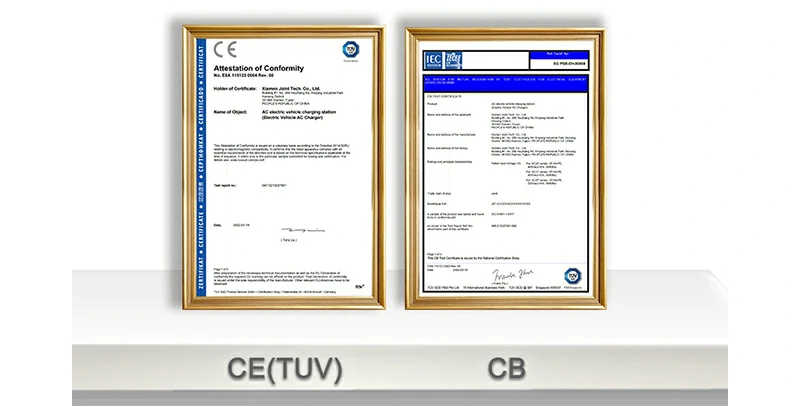
Vehicle-to-Grid (V2G): The Future of EV Charging and a Smarter Energy Grid
Vehicle-to-Grid technology is redefining the role of electric vehicles, turning them into dynamic energy assets that benefit drivers, utilities, and the planet.

Operators and manufacturers of electric vehicle EV (EV) charging systems must maintain high standards in order to survive the highly competitive yet still new market. Therefore, a dependable system and components supported by globally recognized performance and safety certificates are an essential selling point and an important step to verifying compliance. There are many manufacturers currently providing solutions and services encompassing the entire electric vehicle value chain, including engineering testing, design review, installation, type approval, training and consulting, as well as market access services, but more importantly, the manufacturer must provide all these as one-stop services.
With electric cars becoming more and more popular on our roads, demand for charging products is expected to increase and accelerate in the coming years, making this an interesting market to venture in. And with new entrants and traditional manufacturers using different types of tools and technology approaches for their electric cars, it is important that standards are put in place to make sure that electric technologies are trustworthy and reliable. Breakdowns in the electronics in the charging infrastructure and the vehicle could have serious consequences not only for the occupants but also for the people involved in the rescue teams.
So for peace of mind as well as accident avoidance, reliability and safe operation of all EV charger components including batteries, plug connectors, controls, wires, and switches need to be guaranteed.
Regulatory frameworks in charge of establishing benchmarks for different types of electric vehicle component tools and providing certification for manufacturers will help increase consumer confidence, car owners’ safety as well as supply compliance.

The CE certification has a published standard known as IEC61851, which applies to off-board and on-board equipment and is often used to charge EV with a traditional AC power supply voltage of 1000V as well as a DC voltage of 1500V. When hooked up to the power supply system, this equipment can distribute power to all other services on the electric vehicle whenever it is needed.
The certification contents cover such things as operating conditions and characteristics of the charger and the connection to the electric vehicle. The necessities for specific connectors, inlets, sockets, and plugs for electric cars are properly highlighted in IEC62196-1:2003 while the standard boards for EV connectors, as well as entrances, are too under consideration. Not that this standard doesn’t cover every safety element related to maintenance and neither does it apply to railway cars, trolleybuses, off-road vehicles, and industrial trucks.
Other certification tests for EV chargers and its components include:
Generally, CE and other standard guidelines cover the following aspects:

(Source: Joint Tech Holds CE And CB Certificates)
Lastly, common components of EV chargers have standards already in place. For instance, personal protection components must observe the standards that cover broader requirements for circuits as well as specific requirements for protection components for use in EV charging systems and may differ depending on the types of the charger as well as regional grid setups. Vehicle couplers should observe standards published for plugs, couplers for EVs, and receptacle safety.

Vehicle-to-Grid technology is redefining the role of electric vehicles, turning them into dynamic energy assets that benefit drivers, utilities, and the planet.

At this ACT Expo, Joint Tech will unveil its latest advanced commercial Level 2 charging solution, designed to enhance the user experience. Meanwhile,powered by new technology, our commercial chargers effectively address multiple challenges encountered in real-world applications.

The new tariffs imposed by the United States have once again caused global economic tension.In order to respond to the impact on the global supply chain, Joint new factory in Malaysia offers favorable tax rates.